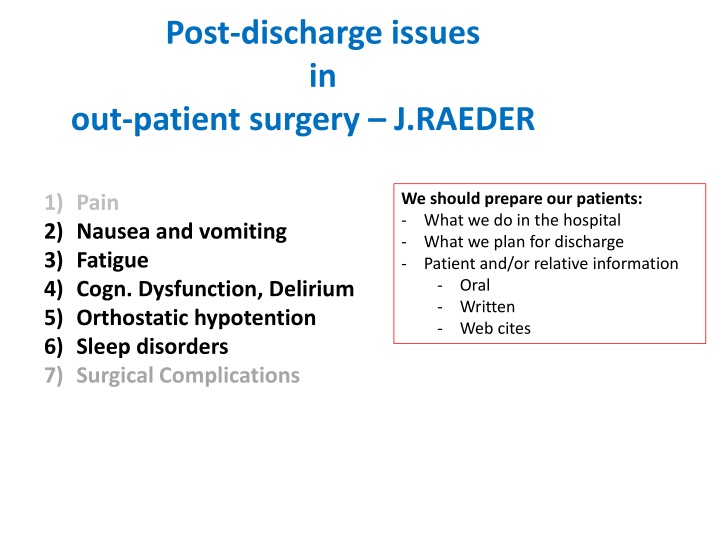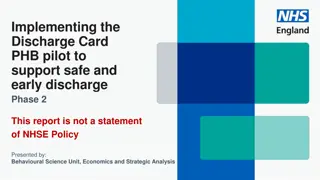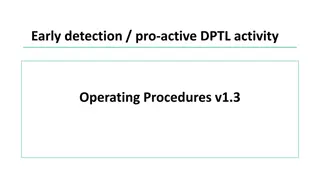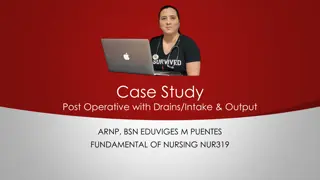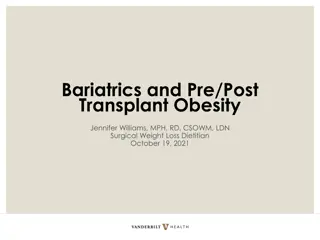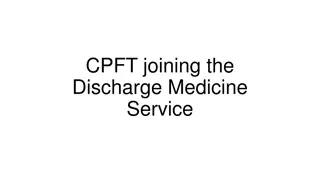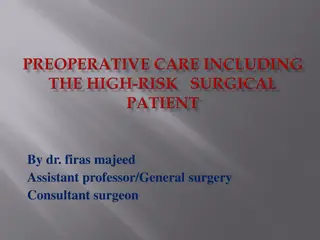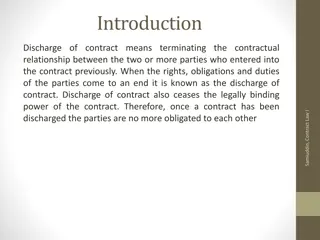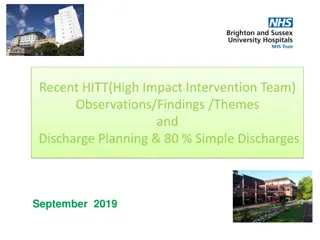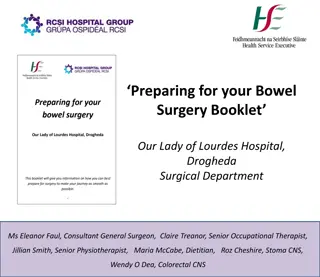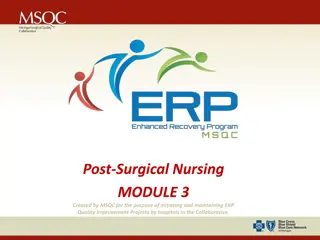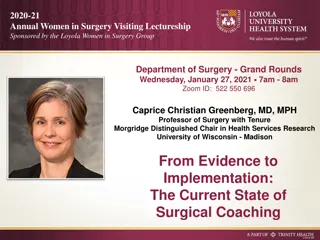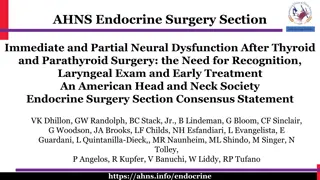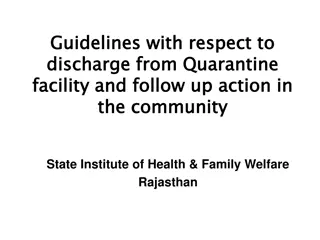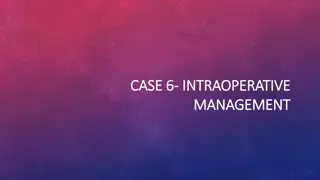Post-Discharge Issues in Out-Patient Surgery
In out-patient surgery, preparing patients for post-discharge issues like pain, nausea, fatigue, cognitive dysfunction, orthostatic hypotension, and sleep disorders is crucial. Effective prophylaxis and treatments are available for managing concerns such as post-discharge nausea and vomiting, fatigue assessment, post-operative fatigue, orthostatic hypotension, and sleep disorders in surgical populations. Understanding and addressing these issues can enhance the overall recovery process for patients.
Download Presentation

Please find below an Image/Link to download the presentation.
The content on the website is provided AS IS for your information and personal use only. It may not be sold, licensed, or shared on other websites without obtaining consent from the author.If you encounter any issues during the download, it is possible that the publisher has removed the file from their server.
You are allowed to download the files provided on this website for personal or commercial use, subject to the condition that they are used lawfully. All files are the property of their respective owners.
The content on the website is provided AS IS for your information and personal use only. It may not be sold, licensed, or shared on other websites without obtaining consent from the author.
E N D
Presentation Transcript
Post-discharge issues in out-patient surgery J.RAEDER We should prepare our patients: - What we do in the hospital - What we plan for discharge - Patient and/or relative information - Oral - Written - Web cites 1) Pain 2) Nausea and vomiting 3) Fatigue 4) Cogn. Dysfunction, Delirium 5) Orthostatic hypotention 6) Sleep disorders 7) Surgical Complications
Post Discharge Nausea and Vomiting PDNV Prophylaxis/treatment: - Non-opioid analgesia post-operatively - Residual effect of hospital given anti-emetics: - 5-HT3 block, neuroleptic, ephedrine up to 24 hr - Aprepitant, Palonosetron 48 hrs - Dexamethasone, scopolamine patch up 2-3 days - Non-pharmaocological measures: - Adjust fluid, food intake: timing amount - Resting, fresh air, cold forehead dressing, acupressure - Drugs taken at home: - Tablets? Mixtures? - Orally disintergrating ondansetron - Suppositories (neuroleptics, metoclopramide) Raeder J: ASA refresher course, 2017 in press
Fatigue Assessment in a Surgical Population Identity-Consequences Fatigue Scale (ICFS)1 Specifically developed for postoperative fatigue 31 items ICFS 10-ShortForm (10-SF)2 10 items Retains 98% of information in original ICFS Christensen Fatigue Scale3 Single-item scale NRS (1-10) with 4 anchors 1) Paddison J: J.Psycosom.Res. 2006 2) Nostdal T: J.Psycosom.Res. 2016 3) Christensen T: Br.J.Surg. 1982
Post-operative fatigue Day 1 Day 3 Day 6 day 30 POFS > 50 patient feel a significant impact on activities
Orthostatic hypotention Traditional fainting: Dehydration, pain, drugs (clonidine, pregabalin, gabapentin) Postoperative Orthostatic Tolerance In 12-60% of patients, more with extensive surgery, females,opioids, regular antihypertensive medication Resolves within 24-48 hrs Pathophysiology (tissue destruction? Inflammation?): Attenuated endogenous vasopressor response, increased vagal output - Testing? Subcutaneous ephedrine?
Sleep Disorders Low quality sleep first night Disturbed day-night rythme, less REM sleep (opioids) Increased day-time sleep Night 2-3: catch-up sleep with more REM sleep, dreams, movements (hypoxia?)
